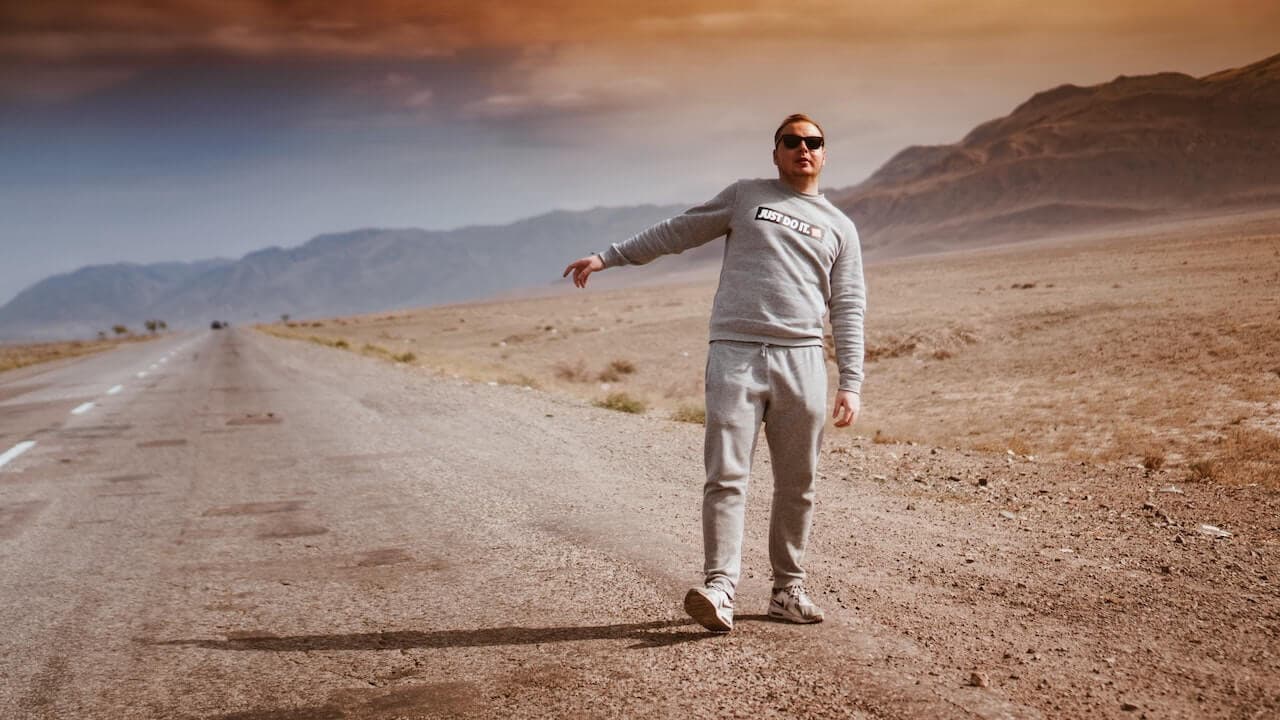
Qualicum Beach, Vancouver Island to Tofino, Vancouver Island (165km)
Barne had separated his possessions into two bags: a small bag that contained his money, passport, and electronics, and a bigger bag, which contained his clothes, camping equipment, and everything else. This precaution – which allowed him to abandon his large bag if he had to – was the only sign he gave that he was nervous about our trip.
Barne was a 19-year-old German guy with a magnificent beard and a satisfyingly deep voice whom I had met a few weeks ago while volunteering on a small farming project in Qualicum Beach, Vancouver Island. Although he was strong and well-suited to the heavy physical labour we were required to do there, he hadn't liked the people we worked for. When the time came for me to leave, he had decided he wanted to go too.
Now I was taking him hitchhiking for the first time.
Our destination was Tofino, a remote part of the island that is famous for its beautiful beaches and incredible surfing. It was only two or three of hours of driving, so I was certain that we'd get there in one day. The route was incredibly easy; a few short hops between small towns followed by one long road that went directly to Tofino. The weather was bright, sunny, and warm – perfect weather for relaxing at the coast.
I took him confidently to our first hitching spot: a large intersection with almost all the traffic going in our direction. We stuck out our thumbs. Nothing happened. The drivers didn't want to stop when the lights were green and when the lights were red they simply ignored us. After an hour without success I could see that Barne was beginning to wonder whether this hitchhiking thing worked at all.
“Let's cut our losses and take a bus to the next town,” I said. The local buses were very slow, but we weren't having any luck here.
While we were on the bus I figured out a good place for us to get off to start hitching again. Luckily the bus route crossed right over the road we needed to follow to Tofino – it would be very easy to get to the hitching spot. I spent 20 minutes sitting on the bus telling Barne about our good fortunes before I realised that we'd missed our stop. Barne sighed.
An hour later, soaked in sweat, we finally arrived at the correct place. Traffic flew by at 120kph. A big red sign warned us: no pedestrians. There was no way around it; the road that had looked perfect on the map was in fact impossible to hitch. I looked at Barne. It was mid-afternoon and we hadn't caught a single ride yet.
“I'll make a sign,” I said.
We found a spot on a smaller road leading on to the one we actually wanted. For a while the traffic passed by without taking notice. Then, suddenly, a blue Toyota swerved over and broke hard on the gravel beside us. I ran over to the vehicle. A silver haired white woman sat behind the wheel, grinning.
“Normally I only stop for Natives,” she said, “But you guys are in totally the wrong place.”
She drove us to a better place, and when she let us out Barne made meaningful eye contact with me.
“Well, we're on our way,” I said. “The next ride won't take so long.”
The next ride was from a man who took us less than 2km down the road to a gas station. Then we got a lift with two old loggers who told us stories of the girls they'd slept with in the forests that we drove past. We had time to hear several detailed stories before they dropped us off at a roadside liquor store. Unfortunately another hitchhiker was already there trying his luck. While we waited for him to get a ride we sat and chatted on the liquor store bench with a Native Canadian.
The three of us had an easy conversation about all best times we'd had drinking. “You want a beer?” the Native Canadian kept offering, amazed that we kept turning him down. Eventually the hitchhiker got a ride and it was our turn. “Remember,” the Native Canadian said as we left, “Every day is a good day when you can walk Mother Earth.”
And then: “Change your sign to 'TUFF', and you'll have better luck. That's how we say Tofino around here.”
As we put our bags down at the spot, I began to realise why it had taken the other hitchhiker so long. There was virtually no traffic. But at least we were out of the town now. We could sleep in the forest here if we wanted. I wondered how I should approach suggesting the idea of camping to Barne. We had been hitching for close to 7 hours, and we weren't even half way there. This was not the introduction to hitchhiking I'd been hoping to give him.
Finally, a black truck with two surfboards attached to the roof stopped and we spent two hours driving through picturesque mountains in the evening light.
“So how do you like hitchhiking?” I asked Barne after we arrived in Tofino.
“I like it,” he said, “but I don't know if I'll do it again.”
“Well, at least you tried it first,” I said.